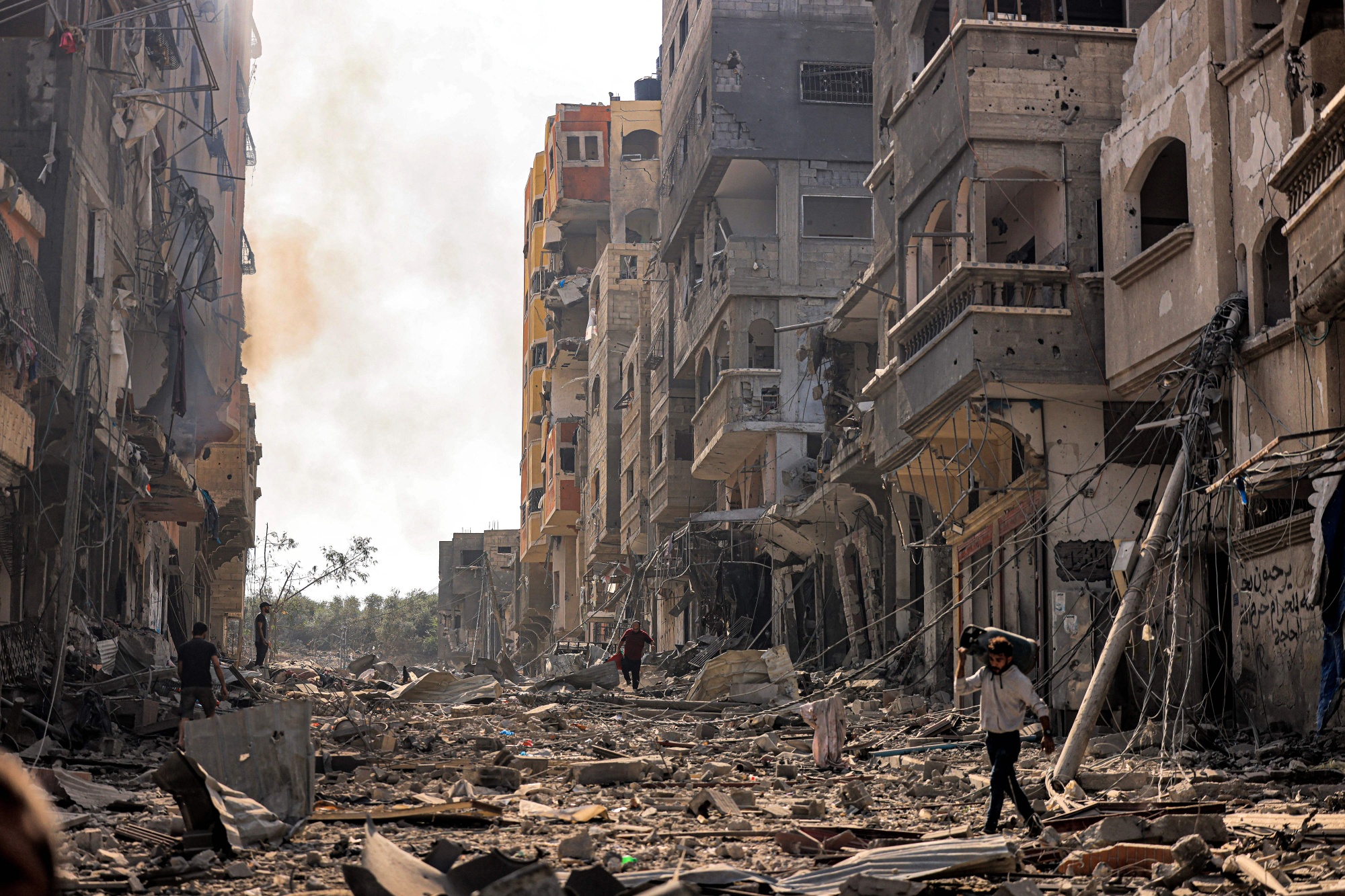As the world has watched in horror at the events unfolding in Israel and Palestine it has been hard to find analysis that suggests the conflict is anything other than unsolvable. Yet now, more than ever, states must use this moment to pursue a resolution of the wider Israel-Palestine issue. If left unresolved, its effects will no longer be confined just to the Middle East. Instead, it will destabilize countries far away from the conflict. And above all, continue the misery heaped upon innocent lives in the region.
Hamas’ October 7 attack on Israel caught Iran’s leaders by surprise. Nonetheless, the eruption in violence has, in the medium term, suspended further relationship-building between Israel and Arab states. This serves Iran’s purpose well. An escalation in the situation, however, is unlikely to suit Tehran.  Of late, after emerging from a dual crisis of a deteriorating economy and months’ long anti-regime protests, Tehran seems to be interested in good neighborly conduct, perhaps out of a desire to rescue its flailing economy.
It would not make strategic sense for Iran to climb the escalatory ladder, just when the regional situation is to its liking. Tehran will relish the opportunity to engage in political posturing and brandishing its revolutionary credentials in the region, but it would not welcome its own direct involvement or that of Hezbollah, the Lebanon-based “crown jewel” of Iran’s allies and proxies in the region. Hezbollah leader Hassan Nasrallah’s speech to his followers on November 3, made clear that the group would not intervene in the conflict just yet but would keep the Israel-Lebanon border hot.
Through its allies’ attacks on Israel and American bases in Syria and Iraq, Iran is indicating that it could widen the conflict if it wanted to. According to Iran’s President Ebrahim Raisi, Israel has already crossed red lines, which “may force everyone to take action.” As civilian casualties in Gaza mount, what Tehran’s red lines are and how it plans to react to Israel remain unclear.
Despite America’s firm backing of Israel, it remains the only country that can de-escalate the situation in the region. China currently lacks the soft or hard power to play any role in resolving the Israel-Palestine issue. Russia has blamed the US for the Gaza crisis. Yet Russia, like Iran, will not want the situation escalating into a war that sucks in the region. Moscow cannot afford to send more of its already-stretched military to Syria. If the Kremlin were to continue hosting Hamas, as it did in late October, Israel may return the favor by selling arms to Ukraine.
The situation has not yet escalated to a regional conflict, but the civilian death toll in Gaza continues to increase. On November 3, Israel rejected US Secretary of State Antony Blinken’s call for “humanitarian pauses” in the fighting. It is worth noting that the US had on October 18 vetoed a UN Security Council resolution calling for humanitarian pauses in Gaza.
On a broader level, the longer the Israel-Palestine issue festers, an already frail global order will weaken further – the UN has been rendered almost ineffective in bringing the violence to an end. Perhaps taking note, Israel refused a visa to the UN’s humanitarian chief after UN Secretary General Antonio Guterres said Hamas’ attacks did not happen “in a vacuum.”  On October 28, a top UN human rights official resigned in protest at what he called the organization’s weak response to the crisis.
During his speech to Americans on October 16, Joe Biden spoke of American leadership in the world. He should act on his own words and lead the way by devoting the rest of his term toward the pursuit of a viable two-state solution, if not to save innocent lives in the region, then out of self-preservation. The deleterious effects of an unresolved Israel-Palestine conflict are multifold.Â
First, across the West, a chasm has emerged between public opinion, particularly among young people and establishment politicians. Thanks to social media, youth across the world can draw connections between expressing solidarity with Palestinians and other social justice causes like Black Lives Matter and climate justice. A political class that does not consider public opinion will increasingly face the risk of delegitimization. This will create more space for an already ascendant far-right in many countries.
Second, an unresolved Israel-Palestine conflict will become a radioactive demarcation point in politics across countries alongside a rise in Islamophobia and antisemitism. This will destabilize diverse societies.
Third, the absence of open debate in societies will open them up to widespread disinformation and propaganda.  Disinformation on social media during the current fighting has only fueled the conflict, with tragic consequences. Sensible states ought to let their societies debate the issue seriously, while being vigilant against any incitement to violence. Free speech also includes the right to protest. France and Germany’s banning of pro-Palestine protests does not augur well for the stability of their polities.
Ultimately, the Israel-Palestine conflict threatens to destabilize an already fragile world order. For the sake of innocent lives and global stability, responsible states must urgently pursue peace and work towards a package deal that includes a resolution on issues like borders, settlements, security, and Palestinian sovereignty. Although the path ahead seems near impossible, the dangers of inaction are too grave to ignore.
Dnyanesh Kamat is a political analyst who focuses on the Middle East and South Asia. He also consults on socio-economic development for government and private-sector entities. X: @sybaritico





